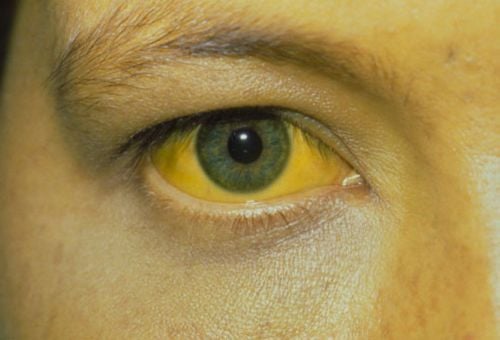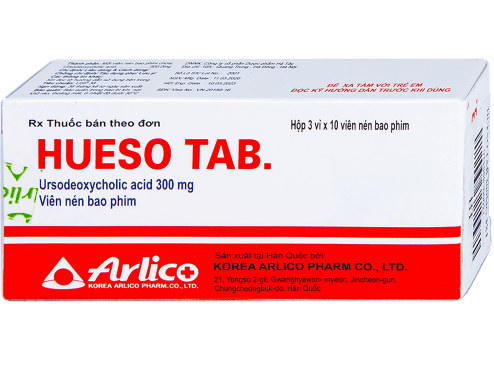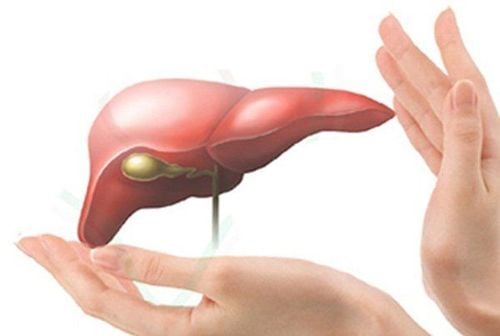This is an automatically translated article.
The article is professionally consulted by Master, Doctor Mai Vien Phuong - Gastroenterologist - Department of Medical Examination & Internal Medicine - Vinmec Central Park International General Hospital.The liver is the largest solid organ in the body and performs a variety of functions including synthesis, metabolism, and detoxification. When damaged liver cells release enzymes called liver enzymes into the bloodstream, elevated liver enzymes are a sign of damage to liver cells including inflammation and liver necrosis.
1. What is elevated liver enzymes?
Liver enzymes are essentially enzymes that catalyze biochemical reactions in the liver, helping the liver to take over the function of metabolizing substances, liver enzymes include:Alanine transaminase (ALT or SGPT) Aspartate transaminase (AST or SGOT) Gamma-glutamyl transferase (GGT) Alkaline Phosphatase (ALP) is found in the bile ducts and hepatic sinusoids in the basic structural unit of the liver. Normal when liver cells die from aging. Some liver enzymes will be released into the bloodstream at concentrations below 35 UI/L.
Due to a certain cause, leading to more destruction of liver cells, making liver enzyme levels in the blood increase. If liver enzymes increase from 1 to 2 times the normal level, it is mild, 2 to 5 times is moderate, and more than 5 times is severe.
Trắc nghiệm: Làm thế nào để bảo vệ lá gan khỏe mạnh?
Làm test trắc nghiệm kiểm tra hiểu biết về gan có thể giúp bạn nhận thức rõ vai trò quan trọng của gan, từ đó có các biện pháp bảo vệ gan để phòng ngừa bệnh tật.2. What causes increased liver enzymes?
Viruses: There are 5 viruses that cause hepatitis, namely A, B, C, D, E. When entering the body, these viruses will destroy liver cells. In particular, hepatitis B and C viruses are both capable of causing acute and chronic hepatitis, increasing the risk of liver cancer and cirrhosis. Abuse of alcohol: The cause of high liver enzymes may be due to excessive consumption of alcohol, which damages and decreases liver function. In addition to alcoholic liver disease, drinking a lot of alcohol also affects other organs such as the stomach, heart, nerves... Inappropriate drug use: Most drugs for pain relief, anti-inflammatory, anti-tuberculosis ... are all metabolized in the liver. Having high liver enzymes can be caused by overuse of drugs, burdening and damaging the liver. Especially recently, the increased use of functional products has increased the rate of hepatitis. Diet: Dirty, moldy, preservative-containing foods...all contain a certain amount of toxins and aflatoxin, causing hepatitis, increasing liver enzymes, and even liver cancer. Biliary tract disease: Cholelithiasis, biliary tract infection, biliary tract tumor... Because liver enzymes are not only produced in the liver, a number of other organ diseases also cause elevated liver enzymes, including: Cardiovascular disease (cardiomyopathy, myocardial infarction ..), respiratory disease, iron metabolism disorder, diabetes...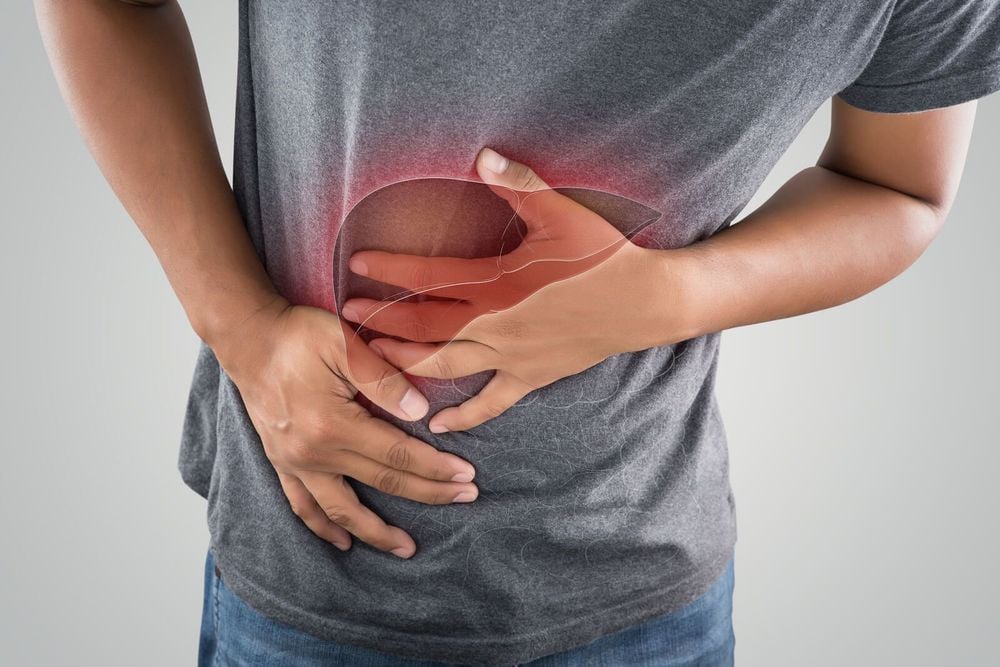
3. Signs of increased liver enzymes
The signs of elevated liver enzymes are often not obvious, the higher the level of liver enzymes, the more obvious the symptoms. Including symptoms such as:The patient has anorexia, vomiting and. nausea, abdominal pain. Mild fever, fatigue. Right lower quadrant pain: When liver enzymes are elevated, the patient will feel a dull pain in the right lower abdomen. Itching: Liver function is impaired, causing toxins to accumulate in the body, on the skin causing itching. Light colored stools, dark urine: Common high liver enzymes due to biliary obstruction. Cholestasis prevents bilirubin from entering the digestive tract and excreted in the urine, causing discolored stools and dark urine. Jaundice: This is the most characteristic symptom of elevated liver enzymes. However, when you notice a change in skin color, the disease is also alarming. Because the symptoms may not be obvious if the elevation of liver enzymes is minimal, the simplest way to detect elevated liver enzymes is with a blood test.
4. Consequences of increased liver enzymes
Long-term elevated liver enzymes can lead to serious consequences including:If liver enzyme elevation occurs for a long time without treatment, it is very easy to have complications such as cirrhosis, liver cancer.. .. High liver enzymes are a warning sign that the liver is having problems such as hepatitis, liver cancer and other liver-damaging diseases. Even elevated liver enzymes due to toxicity can lead to acute liver failure, hepatic coma, and death.
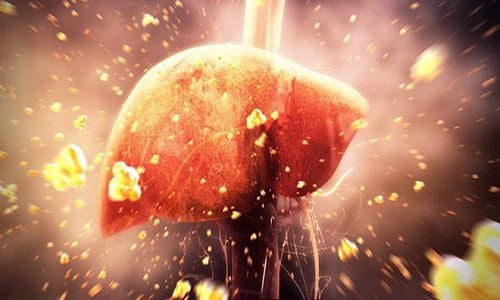
5. How to prevent high liver enzymes?
Reasonable diet: Abstain from alcohol, beer and alcoholic beverages, do not smoke, pipe tobacco and stimulants. You should regularly eat foods that help lower liver enzymes and protect liver function such as foods rich in vitamins A, B1, B2, B6 found in fresh milk, egg yolks, liver, liver, cereals, meat. Lean, green vegetables, drink more fruit juices... Reasonable rest regime: Get enough sleep, go to bed early, avoid staying up late to work stressfully. Drink plenty of water: Drinking water helps accelerate blood circulation and enhance the functioning of liver cells, helping the process of eliminating toxins from the body faster. Drink at least 1.5 liters of water every day. People with liver disease, hepatitis virus infection should be checked every 6 months. Elevated liver enzymes can be a sign of a serious medical condition in the liver, the signs of high liver enzymes are often not obvious when the liver enzymes are slightly elevated, to determine the simplest way is to check through a blood test. liver enzyme test.At Vinmec International General Hospital, there is now a BILITARY SCREENING Package that helps customers evaluate the liver's ability to work through liver enzyme tests; Early screening for liver cancer and hepatobiliary diseases... From here, it is possible to detect liver diseases early to have a timely treatment plan, bringing the best results to the patient's health.
With nearly 10 years of experience in the field of Gastrointestinal Endoscopy, Master, Doctor Mai Vien Phuong has successfully performed many complicated endoscopic interventions, detecting many digestive cancer lesions at an advanced stage. early, bringing health and peace of mind to many patients. Doctor Phuong specializes in early cancer diagnosis in stomach and colon, endoscopic retrograde cholangiopancreatography in the treatment of biliary tract stones, biliary atresia, cholangiocarcinoma, biliary fistula and treatment of cardiac spasms with technique of opening muscle through the mouth to treat cardiac spasms.
Please dial HOTLINE for more information or register for an appointment HERE. Download MyVinmec app to make appointments faster and to manage your bookings easily.






